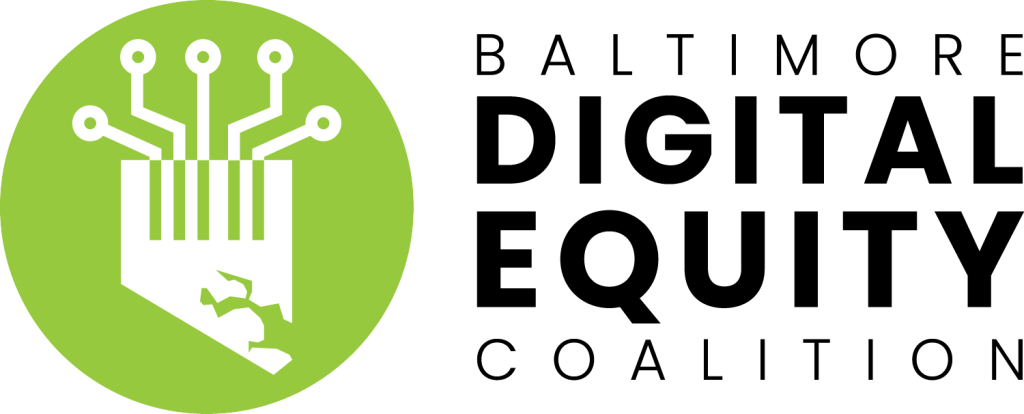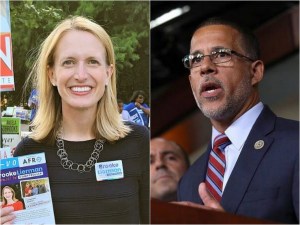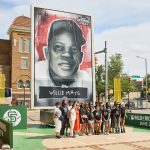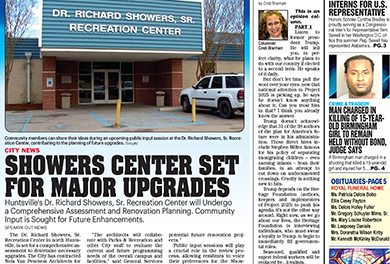By Chrisleen Herard
Special to the AFRO
Technology has built a digital bridge that connects its users to their needs, ranging from education and work to news, health and entertainment. Nonetheless, as Baltimore officials and organizations continue to work toward closing the city’s digital divide, not all residents have been able to cross over to a more efficient and technological life.
“The long-term goal is that everyone has the opportunity and skills to fully benefit from the full range of civic and cultural participation, employment, lifelong learning and access to essential services,” Andrew Coy, the CEO and president of the Digital Harbor Foundation, said. “Anything less than this is not good enough.”
Two years ago, Baltimore became one of the first cities in the nation to appoint a director of the Baltimore City Information and Technology’s (BCIT) new office, Broadband and Digital Equity (BDE). Mayor Brandon Scott put the new role into place to assist in allocating affordable, high-speed internet for the several thousand residents in the community who had little to no access.
“The long-term goal is that everyone has the opportunity and skills to fully benefit from the full range of civic and cultural participation, employment, lifelong learning and access to essential services. Anything less than this is not good enough.”
Andrew Coy, the CEO and president of the Digital Harbor Foundation
A 2020 report conducted by the Abell Foundation referenced a survey that found over 40 percent (96,000) of Baltimore homes without wireline internet service, most lower-income.
“Baltimore has made incredible strides to close the digital divide, especially at the beginning of the COVID-19 pandemic, but we still have more to do,” Cody Dorsey, the executive director of the Baltimore Digital Equity Coalition (BDEC), told the AFRO. “Digital adoption gaps still exist, particularly when we consider demographic factors such as communities of color, the disabled and those economically disadvantaged.”

Credit: Photo courtesy of BDEC
The city of Baltimore released a digital equity framework this year that additionally revealed a racial undertone within the division. While over 70 percent of white households have wireline broadband, or high-speed internet connections, and over 80 percent have a desktop or computer, only 50 and 60 percent of Black households have the same access. This is due to the history of racial and systemic disparities.
“Baltimore is the home of redlining. The digital divide is the new-aged redlining,” said Chrissie Powell, the chief growth and impact officer of Byte Back Baltimore. “The concentrated neighborhoods in Baltimore who are suffering most from the lack of internet connectivity, devices and digital skills are primarily African American, low-income neighborhoods. This not only impacts these community members’ ability to successfully access vital healthcare, education and job opportunities, but also social service benefits and voting rights.”
In an effort to bridge the digital divide, earlier this month Mayor Scott and BDE announced a nearly $1 million investment, the first distribution from Baltimore’s Digital Equity Fund, in 22 organizations that are on the same mission of pursuing digital equity.
“Supporting community-based organizations doing the “boots on the ground” work is key (because) sadly, while hundreds of millions of dollars are being received by the state of Maryland via federal funding, Baltimore is not slated to receive any dollars,” Powell said.
“While there is a growing and strengthening coalition of folks, from the BDEC to the mayor’s office and many others, there have not been as significant investments in Baltimore from the state level as there have been in other Maryland counties,” Coy said.
According to the Maryland Office of Statewide Broadband, out of the $182.4 million in funding that the state received in the last three years, Baltimore City only received $1.8 million, or just nine percent of the total distribution.
Because of this, it is important that, alongside the mayoral office, organizations and companies like BDEC, Byte Back and Verizon offer high-speed internet services at more affordable prices to help build digital equity in the Baltimore community.
“Many partners are working collaboratively to close the digital divide,” Dorsey stated. “The BDEC is now focused on coalition-building for advocacy, educating our policymakers and communities on the issue of digital equity and bringing to light the gaps that still exist.”
“Byte Back’s Baltimore site launched in 2019 and is building on Byte Back’s successful track record of bridging the digital divide for over 25 years,” Powell said. “Our mission is to provide under-resourced communities with an equitable pathway into the digital economy through affordable high-speed internet, computer devices and comprehensive digital skills training. (Our) goal is to close the digital skills gap city-wide (and to provide) vital support for all under-resourced and historically marginalized residents in Baltimore City.”
Verizon has 5G home internet plans that go as low as $35 per month to provide affordable services to eligible clients. The wireless carrier company also partners with the Affordable Connectivity Program and the Maryland Emergency Broadband Benefit to offer services starting at $15 in addition to providing classes to increase digital skills.
“Verizon believes the digital divide will be addressed with access, affordability and adoption,” said Paul Plymouth, the director of state, government and local engagement of Verizon in Baltimore. “When it comes to access, we continue to build out our wireless network to offer Verizon 5G Home to residents where Fiber Optic Service (FiOS) is not an option.”
“We continue to work with local government, nonprofits and community partners to promote our value services and educate residents on the digital skills they need for today’s society. Our digital equity goal in Baltimore is to help connect under-resourced areas and residents with the tech tools and skills for today and tomorrow.”
With the mission and promise to provide Baltimore with reliable high-speed internet, education and technical support, the city and its community-based organizations and companies hope to close the digital gap in the near future.
“Digital Equity is ensuring that everyone, everywhere has equitable access to technology and technological communication,” Dorsey said. “As technology is ever evolving, we must continue to have conversations on digital equity.”
The post Re-connecting Baltimore: Bridging the city’s digital gap appeared first on AFRO American Newspapers .










